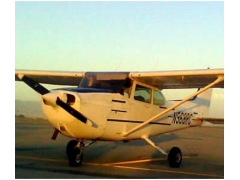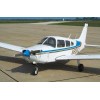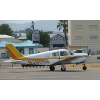The Private Pilot is the certificate held by the majority of active pilots. It allows the command of any aircraft (subject to appropriate ratings) for any non-commercial purpose, and gives almost unlimited authority to fly under visual flight rules (VFR). Passengers may be carried and flight in furtherance of a business is permitted; however, a private pilot may not be compensated in any way for services as a pilot, although passengers can pay a pro rata share of flight expenses, such as fuel or rental costs. Private pilots may also operate charity flights, subject to certain restrictions, and may participate in similar activities, such as Civil Air Patrol and many others.
The basic requirements for the rating are:
Be at least 17 years old
Be able to read, speak, write and understand the English language
Hold at least a third class medical certificate
Pass a computerized aeronautical knowledge test
Pass a practical test
If training under Part 61, Title 14 of the Code of Federal Regulations (CFR) section 61.99, requires at least 30 hours of flight time, including 15 hours of flight with an instructor and 3 hours of solo flight. There are additional requirements, but these are the basics.















